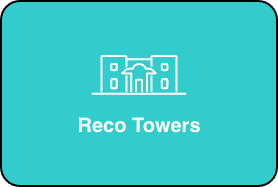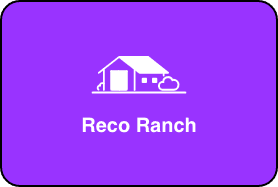Peer Support Impact on Sober Living Success


Introduction to Peer Support in Sober Living
Understanding the Foundation of Sober Living Homes
Sober living homes serve as pivotal sanctuaries for individuals in the different stages of their recovery journey, especially during the critical transition from residential treatment to mainstream society. Unlike traditional residential treatment centers, sober living residences focus on providing a stable and supportive environment where individuals can reinforce the coping skills they’ve acquired and practice living a sober life without the constant supervision of clinical staff. These homes, among which RECO Institute is a leading example in Delray Beach, Florida, are designed to foster a sense of community, responsibility, and personal development.
Sober living homes operate on a self-sustaining model, encouraging residents to maintain employment or education, engage in household duties, and participate in group activities and meetings. This structure prepares residents for the realities of living sober by instilling routines and accountability, essential components for a successful recovery.
The Role of Peer Support in Enhancing Recovery
Peer support within sober living environments plays a monumental role in enhancing the recovery experience and bolstering long-term sobriety. The essence of peer support lies in shared experiences and mutual understanding. It offers individuals the unique opportunity to give and receive guidance, encouragement, and motivation from those who have walked a similar path. This collective wisdom and camaraderie not only lighten the emotional burden of recovery but also significantly contribute to the healing process.
Linking residents through shared experiences, sober living homes like RECO Institute create an invaluable network of support that keeps individuals grounded. Through various mechanisms such as house meetings, group outings, and shared responsibilities, individuals learn to navigate sobriety collectively, drawing strength from their peers. The presence of role models who have achieved significant milestones in their recovery journey serves as a powerful motivation and reinforces the belief that a fulfilling sober life is achievable.
A perfect example of the role of peer support in addiction recovery is RECO Institute’s distinctive alumni buddy program. This initiative pairs newly sober individuals with those further along in their recovery, providing immediate, relatable support and guidance from day one.
Building a Strong Base for Long-term Sober Success
The construction of a robust foundation for long-term success in sobriety is significantly influenced by the interplay between a supportive living environment and active peer support. Together, these elements create a symbiotic relationship that nurtures growth, resilience, and a sense of belonging.
Sober living homes act as the rehearsal space for real-world sobriety, where residents practice making sober decisions, develop healthy relationships, and confront challenges with the support of their peers. This supportive context is crucial for reinforcing self-efficacy and promoting a proactive approach to recovery management. The constant exchange of insights, experiences, and encouragement fosters a dynamic learning environment that equips residents with the tools and confidence needed for independent sober living.
Moreover, the journey through sober living and the natural development of peer relationships within this framework embed a network of support that residents can rely on well beyond their stay in the home. These enduring connections serve as a lifeline in moments of vulnerability, ensuring that individuals never have to face the trials of recovery alone. Through this intricate web of support, sober living homes lay the groundwork for a lifetime of recovery success, underscoring the transformative power of peer influence in the realm of addiction recovery.
The Psychological Benefits of Peer-to-Peer Recovery Support
Reducing Feelings of Isolation in Early Recovery
Starting the journey toward sobriety can be a profoundly isolating experience for many. Without the crutch of substances to lean on, individuals often face their vulnerabilities head-on, which can lead to feelings of loneliness and disconnection. This is where the role of peer-to-peer recovery support becomes critical. By connecting individuals with peers who have navigated similar paths, sober living environments like the RECO Institute in Delray Beach, Florida, help mitigate these feelings of isolation. The peer-to-peer recovery support model fosters an environment where individuals are surrounded by others who understand the challenges of early recovery. This shared understanding cultivates a sense of belonging, effectively breaking the chains of isolation and encouraging residents to open up, share their experiences, and begin healing together.
Strengthening Self-esteem and Confidence Through Community
One of the most profound impacts of peer support in sober living settings is its ability to strengthen self-esteem and confidence among residents. When individuals enter sober living homes, they often carry with them a battered sense of self-worth, marred by their past substance use and the mistakes made along the way. The community within these homes, built on the foundations of mutual respect and understanding, helps in restoring self-esteem. Seeing peers successfully navigate the recovery journey serves as a powerful reminder that they, too, are capable of overcoming their struggles. Furthermore, regular encouragement and positive affirmation from peers reinforce a positive self-image and confidence in one’s ability to maintain sobriety. This boost in self-esteem is essential for long-term recovery, as it empowers individuals to tackle new challenges and seize growth opportunities.
Encouraging Healthy Coping Mechanisms
In the face of stressors or triggers, individuals recovering from substance use disorders may instinctively turn to old, unhealthy coping mechanisms. This reflex can pose a significant threat to sobriety. The integration of peer support within sober living environments is instrumental in addressing this challenge. Through daily interactions, shared activities, and house meetings, residents learn from each other’s experiences and discover new, healthy ways to cope with life’s ups and downs. Whether it’s through engaging in group exercise, participating in 12-step meetings, or simply having heartfelt conversations, these sober living success stories showcase the myriad ways in which a supportive community encourages the adoption of healthy coping mechanisms. Such an environment not only supports sobriety but also enhances overall well-being, equipping individuals with a toolbox of strategies to manage stress and navigate challenges effectively.
Structural Support in Sober Living Environments
Role of House Meetings in Fostering Group Cohesion
House meetings are a cornerstone of the structure within sober living environments, serving as a critical venue for residents to come together, share their experiences, and support one another. These meetings, held regularly, encourage transparency and collective problem-solving, thereby fostering a sense of cohesion and mutual trust among residents. In settings such as RECO Institute in Delray Beach, Florida, house meetings are not merely administrative check-ins but opportunities for individuals to voice concerns, celebrate successes, and discuss any issues related to their shared living environment or personal recovery journey. This practice of open communication reinforces the community’s fabric, instilling a sense of belonging and shared purpose in the pursuit of sobriety.
The Impact of a Structured Schedule on Sobriety
A structured schedule is another crucial component that sober living residences, like the RECO Institute, use to support residents’ recovery efforts. By establishing a routine that includes designated times for work, therapy sessions, group meetings, and leisure activities, residents learn to manage their time effectively, a skill vital for successful reintegration into society. This regularity and predictability provide a stable framework that can significantly reduce anxiety and stress, often triggers for substance use. Moreover, a structured schedule ensures that residents are actively engaging in their recovery daily, which can include participation in mutual support groups for sober living, further cementing their commitment to a sober life. This balance of structured and free time teaches individuals how to fill their days productively, a key to maintaining long-term sobriety.
Navigating Recovery Challenges with Peer Guidance
Peer guidance within sober living environments proves invaluable as residents navigate the complexities of recovery. In moments of doubt or when faced with challenges, having access to peers who have experienced similar hurdles and emerged stronger can be incredibly reassuring. This peer-led approach, integral to the ethos of communities like RECO Institute, allows for real-time support and advice that is both relatable and practical. Whether through formal mentoring arrangements or casual conversations, the sharing of personal recovery strategies and coping mechanisms enriches the support system available to residents. Such exchanges not only strengthen individual resolve but also reinforce the collective knowledge and resilience of the community, ensuring that no one has to face recovery challenges alone.
Enhancing Recovery Through Sober Community Involvement
Participation in Alumni Program Events
A key aspect of sustaining sobriety is staying engaged with the recovery community, and one effective way to do this is through participation in alumni program events. These gatherings provide a platform for individuals who have navigated the path of recovery to share their experiences, triumphs, and challenges. At RECO Institute, the emphasis on building sober relationships is central to its mission, recognizing that the journey to recovery is ongoing and evolves with each person’s experiences. Alumni events range from casual meetups to more structured workshops, all designed to reinforce the bonds among members of the sober living community. These interactions not only offer emotional support but also present opportunities for individuals to learn from each other and maintain their commitment to sobriety in a nurturing environment. The strength derived from seeing tangible examples of successful recovery is immeasurable, inspiring residents to persevere through their challenges.
Volunteering and Giving Back to the Sober Living Community
Volunteering in the sober living community serves multiple vital purposes, it instills a sense of purpose, enhances self-worth, and strengthens the recovery ecosystem. Giving back, whether through mentoring new residents, organizing community events, or participating in broader recovery advocacy efforts, cultivates a meaningful connection to the sobriety journey not just as a personal quest but as a communal endeavor. This reciprocal relationship, where individuals support each other while reinforcing their recovery, is a powerful aspect of sober living programs like those offered by the RECO Institute. The process of volunteering allows individuals to reflect on their growth and contribute positively to the lives of others, fostering a healing environment rich in empathy and solidarity. Such experiences underscore the importance of community support in recovery, highlighting how contributing to the community can significantly bolster one’s resolve to live a sober life.
Creating Meaningful Relationships within Sober Networks
Developing strong, meaningful relationships within sober networks is crucial for long-term recovery success. These relationships provide a foundation of support that can make a significant difference during challenging times. At RECO Institute, the focus on nurturing these connections starts from day one, with structured activities and shared living spaces designed to encourage interaction and mutual support. Networking within these communities goes beyond mere acquaintanceship, it’s about creating a family-like structure where everyone is invested in each other’s well-being. The importance of these relationships is manifold, they offer a buffer against the isolation often felt in early recovery, provide accountability, and even present opportunities for personal and professional growth. Engaging with sober peers facilitates the exchange of strategies for dealing with triggers and stresses, reinforcing the coping mechanisms learned throughout the recovery process. By anchoring individuals in a network of people who understand the intricacies of addiction and recovery, the RECO Institute fosters an environment where every member can thrive, highlighting the profound impact of peer encouragement in sober homes.


The Role of House Managers and Sober Mentors
Providing Leadership and Stability in Sober Homes
House managers and sober mentors play an indispensable role in the operation of sober living homes, acting as the backbone of these communities. They are responsible for more than just the day-to-day management of the facility, they provide a model of sober living in practice. Their experience in sobriety lends credibility to their guidance, encouraging residents to persist in their journeys. By establishing a structured and supportive environment, these leaders effectively create a stable atmosphere conducive to recovery. Their authoritative presence ensures adherence to the sober living home’s rules and protocols, which are crucial in maintaining a safe and orderly living space for all residents. This structure is essential for individuals in early recovery, as it helps to reduce the chaos of their previous substance-fueled lives and replaces it with a sense of normalcy and routine.
Offering Personalized Support and Accountability
One of the key advantages of having house managers and sober mentors within sober living residences is their ability to offer personalized support to each resident. They actively engage with individuals, acknowledging their unique challenges and goals in recovery. This tailor-made approach ensures that residents don’t just feel like another number in the system but are valued members of a community who are given the attention and care they need to thrive. Moreover, these leaders enforce a culture of accountability, gently guiding residents to take responsibility for their actions and their recovery. This level of personal involvement helps residents build self-confidence and autonomy, reinforcing the importance of maintaining their sobriety not just for themselves but for their community as well.
Facilitating Connection to External Resources and Support Groups
Beyond the confines of sober living homes, house managers and sober mentors play a crucial role in facilitating residents’ connection to external resources and support groups. They have a wealth of knowledge about local support systems, including 12-step meetings, outpatient programs, and community resources tailored to individuals recovering from substance use disorders. By guiding residents to these additional sources of support, leaders ensure that individuals have a comprehensive network of resources at their disposal. This external engagement is vital for residents’ growth and integration into a broader sober community. Accessibility to diverse groups and resources allows residents to find specific support that resonates with their personal recovery journey, enriching their experience and enhancing their chances of long-term recovery success.
Peer-Led Recovery Programs in Sober Living
The Importance of 12-Step Meetings and Group Therapy
Peer-led recovery programs, including 12-step meetings and group therapy sessions, are foundational elements in facilitating successful sober living experiences. In these settings, individuals find solace and strength through shared narratives and collective wisdom, fostering a unique bond rooted in mutual vulnerability and understanding. The sobriety journey, often laden with personal challenges, becomes more navigable when navigated alongside peers who echo similar sentiments of struggle and triumph. Through these structured meetings, residents of sober living homes like RECO Institute are afforded consistent opportunities to voice their experiences, listen to others, and learn coping strategies that reinforce their commitment to sobriety. The importance of these gatherings cannot be understated, they serve as a critical supportive framework, ensuring that residents not only remain accountable to their recovery goals but also feel part of a larger, empathetic community committed to collective success.
Learning from Shared Experiences and Success Stories
The profound impact of learning from shared experiences and success stories within sober living environments manifests in strengthened resolve and enhanced recovery efficacy. As residents navigate their path to sobriety, hearing firsthand accounts of overcoming substance use disorders provides both inspiration and practical guidance. Within the nurturing confines of sober living homes, stories of personal breakthroughs and milestones achieved create a resonant narrative that champions the possibility of long-term recovery. This peer-based exchange of life lessons and recovery strategies is instrumental in building a repository of knowledge that residents can draw upon in times of need. Moreover, success stories serve as palpable reminders of the rewards of perseverance, encouraging residents to stay the course and aspire towards their milestones in sobriety. The mutual respect and admiration fostered through these exchanges enrich the communal atmosphere, amplifying the belief in shared victories against addiction.
Mutual Support Groups: Beyond the Basics
Mutual support groups in sober living settings extend beyond the traditional framework, offering a multifaceted approach to recovery that addresses the emotional, psychological, and social dimensions of sobriety. These groups, while grounded in the principles of 12-step programs and other structured methodologies, often evolve to encompass a wider range of activities and support mechanisms tailored to the diverse needs of the resident population. From group outings and social events to workshops on life skills and relapse prevention, mutual support groups foster a comprehensive environment where individuals can thrive in all aspects of their recovery journey. The inclusion of varied activities and discussions encourages residents to explore new hobbies, develop personal interests, and forge meaningful connections within their community. By nurturing a versatile and inclusive support network, sober living homes like the RECO Institute ensure that residents have access to the resources and encouragement necessary to build a fulfilling, sober life. Through initiatives such as enhancing recovery through peer support, the path to sobriety is enriched with opportunities for personal development and communal engagement, solidifying the foundation for lasting recovery success.
Building a Sustainable Sober Support Network
Identifying Trustworthy and Supportive Relationships
As individuals journey through recovery, identifying trustworthy and supportive relationships becomes pivotal. In the context of sober living, like that provided by the RECO Institute in Delray Beach, Florida, the emphasis on fostering a community where peer support thrives highlights this necessity. Trustworthy relationships in sober living are characterized by mutual respect, shared experiences, and the collective goal of sobriety. Identifying these relationships often begins within the structured environment of sober living homes, where residents are actively engaged in each other’s recovery processes. Such environments encourage open communication, vulnerability, and accountability, which are essential foundations for building strong, supportive relationships. These bonds, once formed, become an integral part of the individual’s sober support network, offering guidance, encouragement, and understanding throughout the recovery journey.
The Role of Technology in Connecting with Sober Peers
In today’s digital age, technology plays a significant role in connecting individuals with sober peers, thereby enhancing the recovery experience. Websites, mobile apps, and online platforms offer new avenues for individuals to engage with their sober support network, regardless of physical distance. These digital tools facilitate virtual meetings, shared recovery resources, and continuous communication among sober peers. Particularly for sober living communities like RECO Institute, technology bridges the gap between structured program participation and the autonomy of daily life, allowing residents and alumni to maintain their connections and support networks seamlessly. Moreover, technology amplifies the importance of social support in sobriety, making it more accessible and widespread. By leveraging digital platforms, individuals in recovery can easily reach out for support, share their progress, and stay engaged with the sober community, all of which are vital for sustaining long-term recovery.
Maintaining Long-Term Connections for Ongoing Recovery Support
Sustaining long-term connections within a sober support network is critical for ongoing recovery support. These enduring relationships provide stability, encouragement, and a sense of community that is invaluable for individuals navigating the challenges of maintaining sobriety. To maintain these connections, individuals are encouraged to actively participate in alumni events, support group meetings, and sober community activities. Engaging in these continued interactions strengthens the bonds formed during the initial stages of recovery and ensures that individuals have a reliable network to turn to in times of need. Moreover, by staying connected with sober peers, individuals are reminded of their progress and the collective journey toward recovery. These relationships, nurtured over time, become a cornerstone of the recovery process, offering a foundation of mutual support and shared experiences that contribute significantly to the success of long-term sobriety. Through consistent engagement, communication, and shared experiences, the sober support network evolves into a lifelong resource for individuals committed to living a sober life.
The Impact of Social Support on Sobriety
How Positive Peer Influence Promotes Sobriety
The journey toward sobriety is profoundly influenced by the company one keeps. Positive peer influence in sober living environments, such as the RECO Institute in Delray Beach, Florida, acts as a catalyst for recovery success. When surrounded by individuals who are similarly committed to sobriety and self-improvement, the chances of long-term recovery increase significantly. This environment fosters a culture where sober choices are not only encouraged but celebrated.
The dynamics of peer influence can significantly shift an individual’s mindset from one of limitation to one of endless possibilities. Being part of a community where members uplift and inspire each other to achieve their best sober selves creates a ripple effect of positive behavior change. In this supportive atmosphere, residents learn to redefine their identity beyond their substance use disorders, realizing that a fulfilling and sober life is within reach.
Moreover, engaging with sober peers and recovery success stories brings into perspective the tangible outcomes of persistence and dedication. Witnessing peers triumph over their battles instills hope and motivation, driving individuals to persist through their recovery challenges. It underscores the power of positive association and its undeniable impact on sobriety.
Preventing Relapse through Strong Community Bonds
The foundation of preventing relapse lies in the strength of the bonds formed within the sober living community. Strong community connections provide a safety net that can catch individuals before they fall back into old patterns of substance abuse. These relationships are built on mutual understanding, empathy, and a shared commitment to recovery, creating an environment where individuals can openly share their fears, challenges, and victories without judgment.
This openness fosters a unique sense of accountability not only to oneself but to the community as a whole. Knowing that one’s actions can influence the recovery journey of peers adds a layer of responsibility, serving as a powerful deterrent against relapse. In moments of weakness or temptation, the thought of letting down their support network can inspire residents to seek help rather than reverting to substance use.
Moreover, the collaborative spirit of these communities encourages residents to develop and employ collective strategies for managing triggers and stressors. By pooling their resources and wisdom, the community is better equipped to navigate the highs and lows of recovery, reducing the risk of relapse.
The Importance of Social Skills Training in Recovery
Social skills training emerges as a critical component of recovery, particularly within sober living environments. Many individuals recovering from substance use disorders must relearn how to engage in healthy interpersonal interactions without the influence of drugs or alcohol. Sober living homes like RECO Institute provide a safe and structured setting where residents can practice these skills. Activities such as group therapy sessions, social outings, and house meetings offer opportunities for residents to communicate, collaborate, and resolve conflicts effectively.
This training goes beyond basic communication techniques,it encompasses learning to establish boundaries, express needs and emotions constructively, and build trust. As residents improve their social skills, they gain confidence in their ability to form meaningful connections with others, reducing feelings of isolation and increasing their support network.
Moreover, the acquisition of these skills is pivotal for reintegration into society. Whether it’s navigating the workplace, forming new friendships, or mending relationships damaged by substance use, strong social skills lay the groundwork for a successful and sober life. The emphasis on social skills training within sober living programs highlights the comprehensive approach taken to ensure not just recovery from substance use but a transformation in the residents’ ability to lead fulfilling, socially rich lives.
Collaborative Recovery and Shared Accountability
Setting Collective Goals for Sober Living Success
Collaborative recovery in sober living fosters a unified approach toward achieving sobriety, where individuals work together to set and pursue common goals. This collective effort in settings like RECO Institute not only solidifies the commitment of each member to their own recovery but also to the success of their peers. By establishing clear, attainable objectives, such as maintaining a sober lifestyle, enhancing personal development, and contributing positively to the community, residents cultivate a shared vision that guides their recovery journey. This collaborative process involves regular group discussions, where members voice their ambitions and strategize on how best to achieve them, promoting an environment of mutual support and cooperative problem-solving. Through this cooperative endeavor, the recovery process transcends the individual, becoming a collective achievement that strengthens the bonds within the sober living community and reinforces the foundation for lasting sobriety.
Peer Accountability: A Pillar of Sober Living
In the realm of sober living, peer accountability stands as a critical pillar, ensuring that every member remains committed to their recovery path. This system of mutual accountability within the community not only encourages residents to uphold the sober living home’s guidelines but also to support each other in staying true to personal recovery goals. Through mechanisms such as house meetings and check-ins, residents have the opportunity to share their progress, challenges, and strategies for overcoming obstacles. This openness fosters a culture of honesty, trust, and respect, where individuals feel responsible not just for their actions but for the well-being of their peers as well. The inherent strength of peer accountability lies in its ability to provide a safety net community that collectively intervenes and offers support before a minor setback escalates into a relapse. This shared responsibility cultivates a robust environment where individuals are empowered to grow and succeed together.
Celebrating Recovery Milestones Together
Acknowledging and celebrating recovery milestones within the sober living community serves as a powerful testament to the transformative impact of peer support. These celebrations, whether marking days, months, or years of sobriety, are essential communal events that highlight individual achievements and reinforce the collective success of the community. Such recognition not only boosts the morale of the celebrant but also inspires and motivates other residents by showcasing tangible examples of sober peers and recovery success. By commemorating these milestones, the sober living community acknowledges the hard work, dedication, and perseverance required to reach them, reinforcing the message that sobriety is both a personal triumph and a collective victory. Moreover, these celebrations cultivate a sense of belonging and achievement, reminding residents that they are part of a supportive and triumphant community committed to a sober, healthier lifestyle.


Success Stories and the Transformative Power of Peer Support
Real-life Stories of Recovery and Redemption
Learning From Those Who Walked the Path
The journey of recovery is dotted with stories of individuals who have faced their darkest moments and emerged victorious, embodying the essence of resilience and determination. These real-life stories offer more than just inspiration, they serve as tangible proof of the transformative power of sobriety and the critical role sober living environments play in facilitating such transformations. Residents in sober living homes, like those provided by RECO Institute, often share their experiences of hitting rock bottom, the pivotal moment of seeking help, and the gradual but steadfast path to recovery.
The Ripple Effect of Sharing Success
One of the most compelling aspects of these stories is how they instigate a ripple effect within the community. When a resident shares their journey of overcoming hurdles to maintain sobriety, it not only uplifts their spirit but also ignites hope in others within the sober living house. This communal sharing fosters a sense of solidarity, reminding everyone that they are not alone in their struggles and that success is indeed achievable. It is through these narratives that the fabric of the sober living community is woven, creating a tapestry of support, understanding, and shared victory.
The Role of Peer Support in Overcoming Obstacles
A Guiding Light Through Tough Times
Peer support within sober living environments like the RECO Institute acts as a beacon of hope and guidance, especially during times when the challenges of recovery seem insurmountable. The shared experiences within these communities enable individuals to offer unique insights and strategies that have proven successful in navigating rough waters. This level of empathy and understanding creates a safe space where residents feel comfortable voicing their fears and vulnerabilities, knowing they will be met with compassion rather than judgment.
Cultivating Resilience Through Shared Struggles
The journey of recovery is often paved with obstacles that test one’s resolve. However, the collective wisdom of a peer-supported community equips residents with an arsenal of coping mechanisms and perseverance strategies. Whether it’s dealing with triggers, managing stress, or mending relationships harmed by past actions, the peer support found in networking in sober living communities ensures that no one has to face these challenges alone. The shared struggle not only strengthens individual resilience but also solidifies the communal bond, ensuring that every victory is celebrated and every setback is collectively addressed.
Inspiring Others Through Personal Achievement and Growth
Leading by Example
In sober living communities, personal achievements go beyond mere individual success, they act as beacons of inspiration for the entire community. Residents who achieve milestones in their recovery journey maintaining sobriety, rejoining the workforce or repairing personal relationships as living testimonials to the efficacy of sober living programs and the healing power of peer support. These achievements underscore the possibility of a fulfilling life post-recovery, encouraging others to persist in their efforts.
The Catalytic Effect of Growth and Achievement
Personal growth and achievement within the sober living environment have a catalytic effect, spurring others towards their goals. When residents witness their peers achieving milestones, it reinforces their belief in the recovery process and the value of staying the course. This spirit of encouragement and motivation is pivotal in fostering a culture of positivity and ambition within sober living homes. As each resident strives for personal betterment, they contribute to a thriving community where success breeds success, illustrating the profound impact of peer encouragement in sober homes.
In these communities, each story of recovery, every challenge overcome, and all milestones reached collectively build a narrative of hope, strength, and redemption. It is this narrative that sits at the heart of sober living communities, driving forward the mission of institutions like the RECO Institute. Through the power of peer support, individuals are not only navigating their recovery journey, they are weaving together stories of triumph that will inspire generations to come.
Conclusion: Leading a Fulfilling Life in Sobriety Through Peer Support
Embracing a New Beginning with the Support of Peers
Embarking on the road to recovery is akin to stepping into a new chapter of life-a journey fraught with challenges yet ripe with opportunities for profound transformation. Peer support in sober living environments stands as a cornerstone in this transition, offering not just a safety net, but a springboard toward a fulfilling life. Within the nurturing confines of communities like the RECO Institute, individuals find themselves surrounded by others who genuinely understand the intricacies of recovery. This collective embrace fosters an environment where embracing a new beginning isn’t a solitary endeavor but a shared journey. In this unity, each member draws strength from the success and resilience of their peers, empowering them to forge ahead with confidence and a renewed sense of purpose.
The Continuous Journey of Learning and Growth in Recovery
Recovery is not a destination but a continuous journey of self-discovery and growth. The path is marked by milestones of personal achievement and moments of learning that together, weave a tapestry of enduring sobriety. Sober living environments play a pivotal role in this ongoing process, providing a structured yet flexible framework where individuals can explore various aspects of their newfound sober identity. Through collaborative recovery in sober living, residents are encouraged to set personal and communal goals, embracing the journey as an opportunity for lifelong learning. Each challenge faced and overcome serves not only as a testament to the individual’s resilience but also enriches the collective wisdom of the community, ensuring that the journey of recovery is a shared source of strength and inspiration.
RECO Institute’s Commitment to Fostering Strong, Sober Communities
The mission of RECO Institute goes beyond providing a haven for those in recovery, it’s an unwavering commitment to nurturing robust, sober communities where individuals can thrive. By emphasizing the importance of peer support, structured living, and community involvement, the RECO Institute sets a gold standard for sober living success. The integration of personalized support with opportunities for personal development ensures that residents have access to the resources and encouragement necessary to lead a fulfilling sober life. In fostering these strong, interconnected communities, the RECO Institute not only aids in the recovery of its residents but also contributes to the broader narrative of hope and resilience that defines the journey of sober living. Through their dedication, they ensure that the path to recovery is illuminated by the power of collective support, transforming the lives of individuals and the communities they inhabit.
In this continuum of support, learning, and growth, the RECO Institute stands as a beacon of hope, leading the way in the transformative power of peer support in sober living. By embracing the journey together, individuals in recovery are empowered to lead fulfilling lives, enriched by strong sober communities and the boundless opportunities that sobriety brings. With each success story, the belief in the possibility of a sober, gratifying life is reaffirmed, showcasing the profound impact peer support has on the path to recovery.
Frequently Asked Questions
Question: How does the RECO Institute integrate peer support into its sober living programs?
Answer: At RECO Institute, we believe that peer support is a fundamental pillar of sober living success. Our programs are designed to foster deep, meaningful connections among residents, leveraging shared experiences and mutual understanding to enhance the recovery journey. By actively engaging residents in group activities, 12-step meetings, and house meetings, we create a vibrant, supportive community. This approach ensures that every individual benefits from the collective wisdom and encouragement of their peers, reinforcing their commitment to sobriety and facilitating personal growth within a sober living environment.
Question: What are the main benefits of sober living homes, specifically those offered by the RECO Institute?
Answer: Sober living homes, particularly those provided by RECO Institute in Delray Beach, Florida, offer numerous benefits for individuals in recovery. These include a stable and supportive environment free of substances, peer-to-peer recovery support, and opportunities for building sober relationships that can last a lifetime. Our homes serve as transitional housing, helping residents navigate the critical journey from treatment to real-world sobriety. The emphasis on peer support and community involvement enhances recovery through shared experiences, mutual accountability, and continuous encouragement. Residents learn vital coping skills and engage in routines that reinforce their sober lifestyle, setting a solid foundation for long-term recovery success.
Question: Can you explain the role of house meetings in the success of sober living environments at the RECO Institute?
Answer: House meetings play a crucial role in the success of our sober living environments at RECO Institute. These meetings serve as a communal space where residents can share their experiences, successes, and challenges openly. They foster a sense of belonging and collective responsibility, crucial for building a supportive environment. By encouraging transparency and collaborative problem-solving, house meetings strengthen group cohesion and ensure everyone is aligned with the community’s goals. This structure not only promotes peer encouragement in our sober homes but also reinforces peer accountability, making these meetings instrumental in nurturing a healthy, sober living community.
Question: How does participate in mutual support groups for sober living enhance recovery at the RECO Institute?
Answer: Participating in mutual support groups for sober living is a cornerstone of enhancing recovery at RECO Institute. These groups provide a platform for residents to share their experiences, gain insights from sober peers, and access a wide range of coping strategies that have been effective for others. The sense of community and collective wisdom available in these groups significantly strengthens individuals’ resolve to maintain their sobriety. Additionally, these groups introduce residents to a broader recovery community, enriching their support network and offering diverse perspectives on navigating recovery challenges. By embedding mutual support groups within our programs, the RECO Institute ensures that residents receive comprehensive support that addresses their emotional, psychological, and social needs, fostering a more robust recovery.
Question: In the context of ‘Peer Support Impact on Sober Living Success’, how does the RECO Institute ensure that residents form meaningful connections within the sober living community?
Answer: In the context of ‘Peer Support Impact on Sober Living Success’, the RECO Institute places a strong emphasis on creating opportunities for residents to form meaningful connections within the sober living community. We understand that building sober relationships is essential for a successful recovery. To facilitate this, our programs include structured activities, shared living spaces, and community events designed to encourage interaction and mutual support. Our house managers and mentors play a key role in guiding these connections, fostering an atmosphere where residents feel comfortable opening up and supporting one another. By prioritizing community support in recovery, the RECO Institute ensures that every resident can benefit from the strength and solidarity of their peers, contributing to their overall success in achieving a sober lifestyle.
Question: What steps does the RECO Institute take to help residents build a sober support network for long-term recovery?
Answer: Building a sober support network for long-term recovery is fundamental to our approach at RECO Institute. We facilitate this process through various initiatives starting from day one in our sober living programs. Residents are encouraged to engage with the internal community through house meetings, group activities, and mutual support groups, creating a foundation of connections within the sober living environment. Additionally, we emphasize the importance of connecting with the broader recovery community through alumni program events, volunteering opportunities, and participation in local 12-step or other recovery meetings. Our staff guides leveraging technology to maintain these connections and expand their networks, ensuring that residents have ample resources and support as they transition to independent sober living. Through these efforts, RECO Institute aids residents in establishing a robust, dependable sober support network critical for sustaining long-term recovery.















